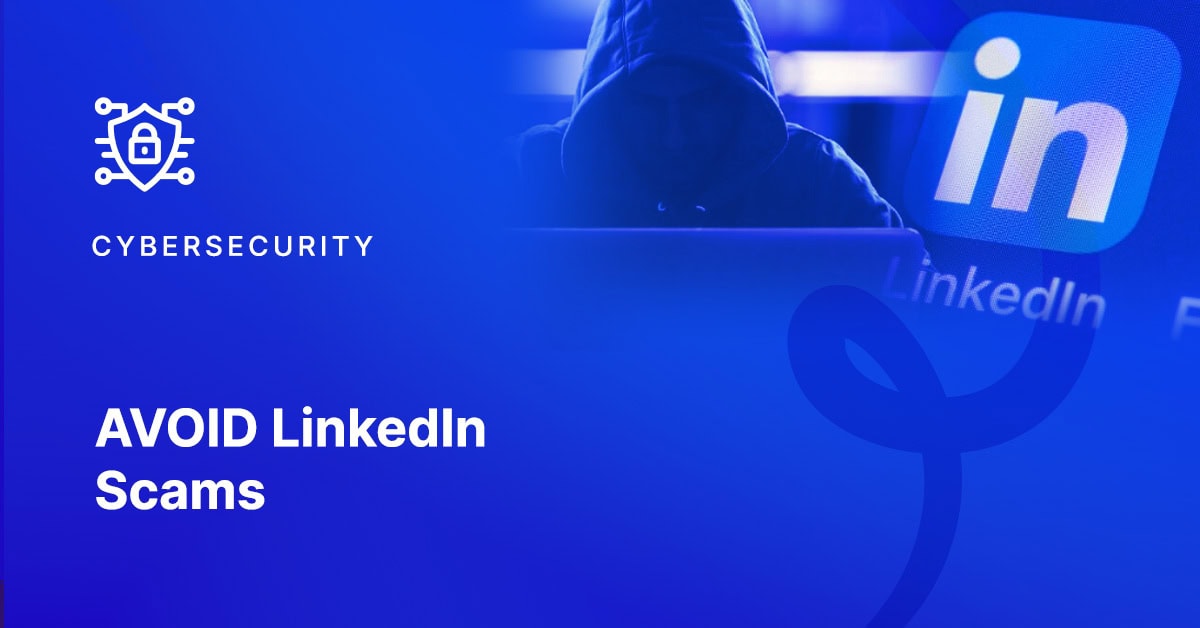LinkedIn, especially in bustling professional hubs like Washington DC and the broader DMV area, has become an irreplaceable tool for professionals. It’s where many connect, network, and unearth new business opportunities. Yet, as its popularity surges, so do the pitfalls. There’s been a noticeable uptick in the presence of fake LinkedIn sales bots that impersonate real users, hoping to dupe the unsuspecting.
This concerning trend isn’t isolated; it’s just one among the many scams prevalent on LinkedIn. The FBI has been explicit about it: LinkedIn fraud is a significant concern for platform users, particularly those in business-centric locales like the DMV area.
In this deep dive, we’ll pull back the curtain on these fake LinkedIn sales bots. You’ll discover their tactics and arm yourself with preventative measures. By staying enlightened and alert, especially in hotspots like Washington DC, you can carve out a safer LinkedIn journey.
Identifying Fake LinkedIn Sales Connections
Social media scams, whether in DC or elsewhere, often prey on emotions. Everyone yearns to be recognized, to be seen as noteworthy. Hence, when a scammer extends a connection request, it can instill a sense of validation. Often, individuals accept these requests without a second thought or deeper look into the sender’s profile.
Blend in a tempting business proposition, and the scam becomes even more potent. Those in the throes of a job search or on the lookout for business collaborations might be especially vulnerable. There’s a built-in trust in the business community, a kind of professional camaraderie. This trust often translates into LinkedIn connections being perceived as more genuine than, say, Facebook friend requests.
Incomplete Profiles and Generic Photos
Scammers often resort to sketchy profiles, usually peppered with generic information, or worse, using stock photos or model images. If an account seems too curated or misses critical details, raise your guard.
Impersonal and Generic Messages
A hallmark of these sales bots is their generic messaging. Genuine LinkedIn users, especially in a network-rich area like the DMV, will likely personalize their outreach, referencing mutual contacts or specific posts. If a message seems templated, it’s best to tread carefully. Many AI tools now exist that allow for the easy personalization of mass messages but, this personalization is often only surface deep extending no further than your first name and general location. Always inquire how you know the person attempting to connect with you, and double check your mutual connections. More advanced LinkedIn scams will leverage existing connections you may share to build credibility.
Excessive Promotional Content and Unrealistic Claims
These scams aren’t subtle. Expect a barrage of direct messages, overflowing with hard sells and too-good-to-be-true promises. Real professionals prioritize relationship-building over incessant self-promotion. Often however, many scam accounts will promote the products of other vendors interlaced amongst their own generic social posts. While this can be harder to spot at a glance, it becomes very apparent once a deeper look is taken; sharp eyed professionals will quickly notice a pattern of evangelical like promotion of a specific company or service.
Inconsistent or Poor Grammar and Spelling
While English inaccuracies can be a clear giveaway, it’s essential to understand the evolving landscape of online scams. Many scammers are now harnessing advanced AI models, such as ChatGPT or FraudGPT, to craft more professional and seemingly trustworthy messages, making them harder to detect. These AI-powered messages often sound more authentic and can easily blend in. However, occasional linguistic anomalies or context lapses might still appear. While it’s reasonable to overlook errors from international contacts, it’s crucial to approach all messages with a heightened sense of vigilance, especially when they appear too polished or generic.
Unusual Connection Requests and Unfamiliar Profiles
Scammers play the numbers game, casting their net wide, irrespective of industry relevance or mutual contacts. Before accepting a request, especially from someone outside the DC or DMV professional circle, ensure you inspect their profile, mutual connections, and content relevance.
Empower Yourself Against Online Scams
Understanding the intricacies of fake LinkedIn sales bots is pivotal for a secure online experience, more so in a dynamic region like the DMV area. With AI technology, scam sophistication is escalating rapidly. Deciphering genuine from fake is becoming more challenging. A recent case from a Washington DC local and relative of one of our staff members highlighted this: They were approached with what appeared to be a promising software solution for a core business problem: marketing, only to discover it was a sophisticated LinkedIn bot scam. The scammer wanted them to link their LinkedIn and Microsoft 365 account to a fake platform giving them full control of their email and social media contacts. Thankfully, they recognized the signs in time, but many aren’t as fortunate.
Whether it’s personal vigilance or team cybersecurity training, the evolving digital landscape demands proactive defense strategies. This is where Ikigai One steps in as your reliable technology partner. Why venture into these waters alone? With Ikigai One by your side, your business can stand resilient and informed in the face of emerging threats. Let’s forge a secure path forward together. Reach out to us today.


